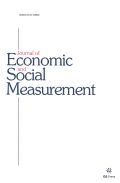Authors: Adler, Nancy | Bachrach, Christine | Prather, Aric A.
Article Type:
Research Article
Abstract:
This paper examines the potential contributions of a new longitudinal household survey that assesses physical health and the social and behavioral factors that impinge on it. It considers how such a survey could inform efforts to reduce health disparities in the United States and improve population health. Health is multiply determined by the interaction of genetic vulnerabilities, behavior, social conditions and environmental exposures over the life course. While the mapping of the human genome focused attention on the biological underpinnings of disease, social and behavioral determinants play an equally essential role. Our failure as a nation to adequately address
…these determinants may help to explain why the US spends more per capita on health care than do other countries, but compared to the other nations, our population is less healthy and has a shorter life expectancy. This paper describes why achieving better health for the population requires data on individual, family and community conditions and their link to disease risk, onset and progression. It reviews limitations of current surveys in capturing this information and argues for a multi-level life course perspective spanning: macro-environmental exposures (e.g., environmental contaminants, institutional structures), meso-environmental factors (e.g., family and social ties, neighborhood and work conditions), psychological states and traits (e.g., anxiety, mastery, stress), health-related behaviors (e.g., smoking, exercise), and physiological processes and risk (e.g., cortisol, HbA1c, telomeres). We consider challenges to data collection and sample considerations such as oversampling of high SES blacks and sampling based on place as well as person. We note that technological advances that may increasingly enable direct collection of cognitive and emotional states, behavior, biology, and placement in space. Finally, we acknowledge that a single survey cannot address all the relevant questions, point to opportunities to leverage other studies, and identify key elements for a new survey.
Show more
Keywords: Health, mortality, disparities, social determinants, stress, gene-environment, biomarkers, place
DOI: 10.3233/JEM-150395
Citation: Journal of Economic and Social Measurement,
vol. 40, no. 1-4, pp. 357-374, 2015
Price: EUR 27.50





